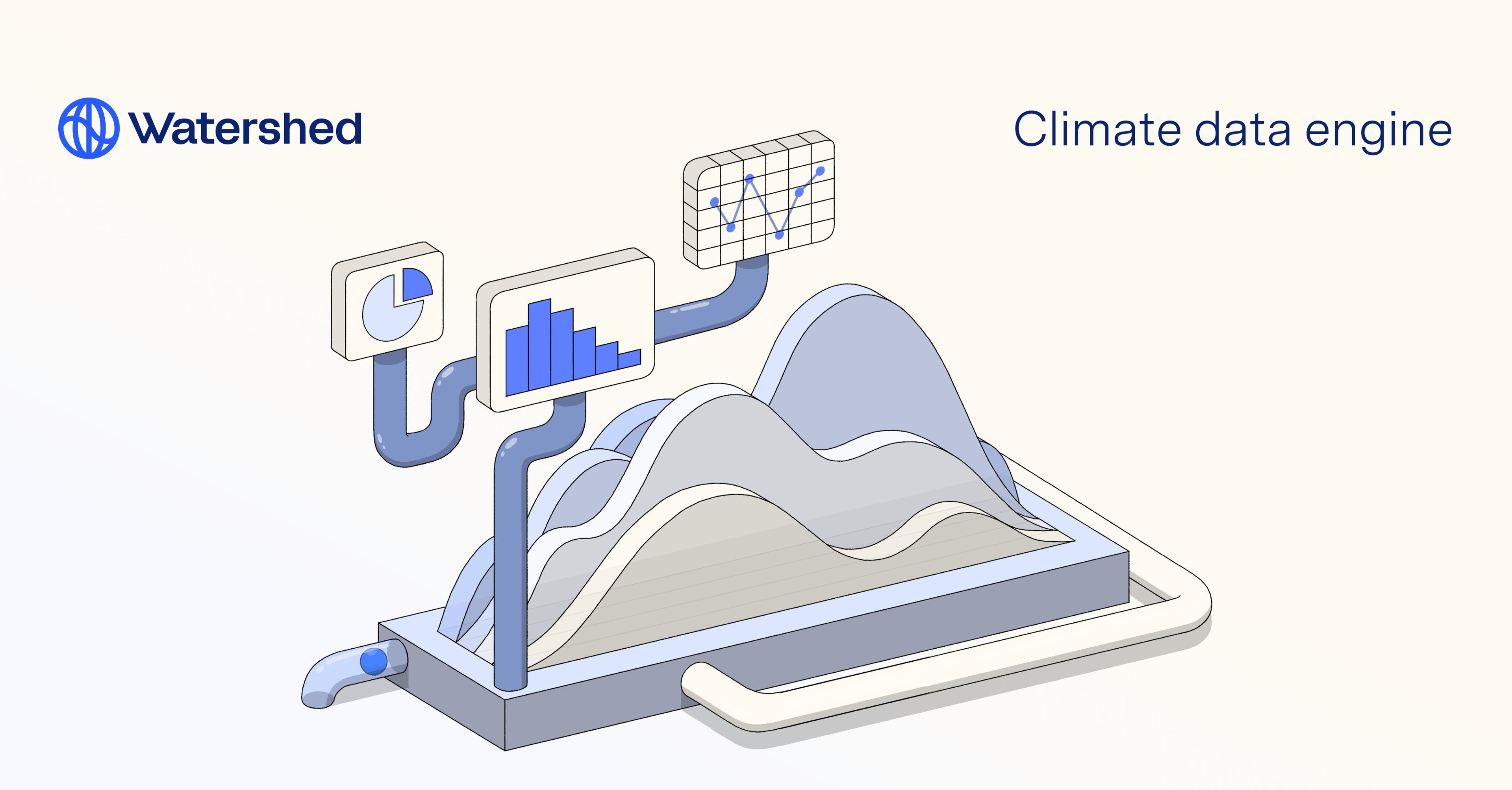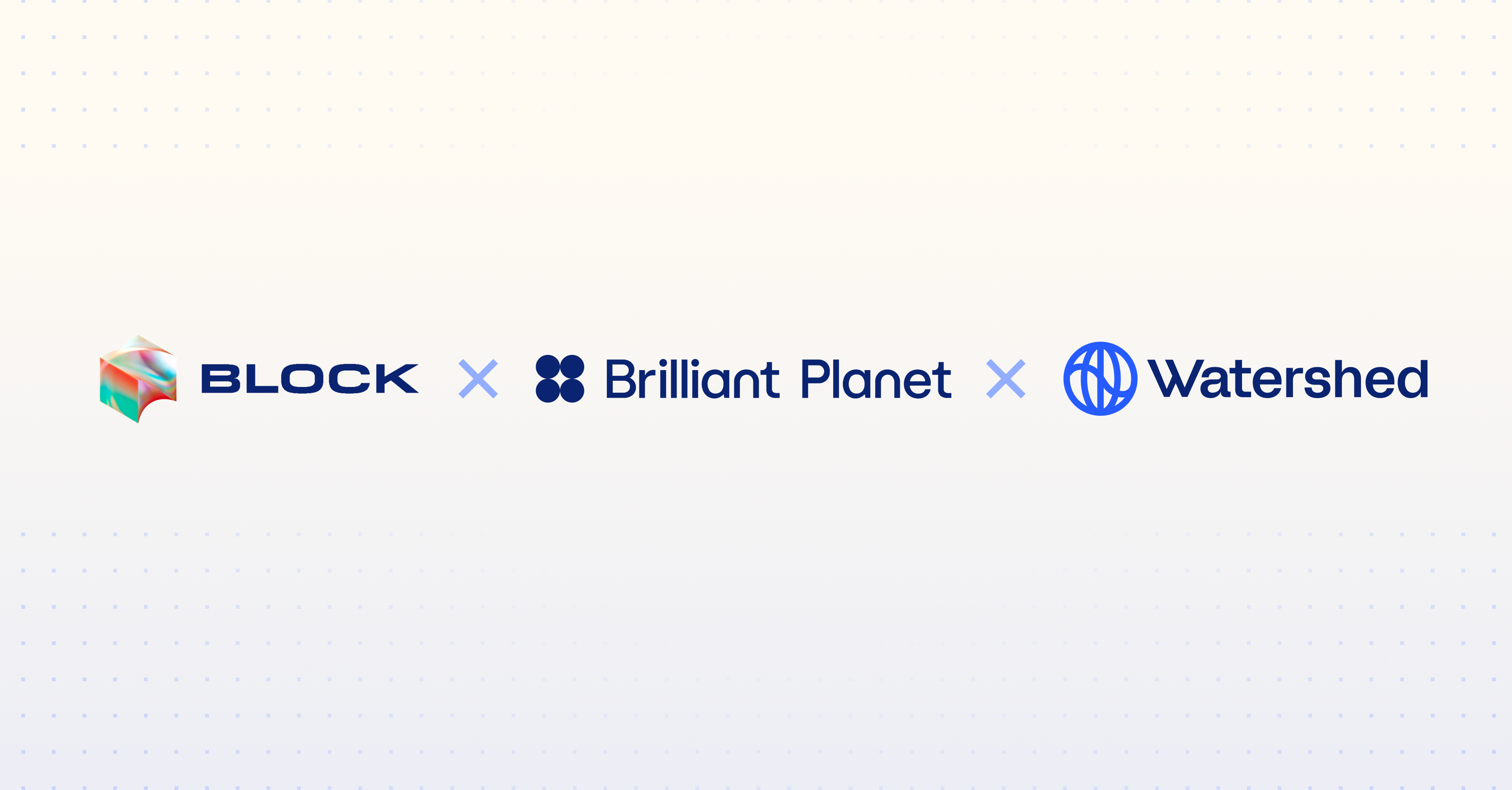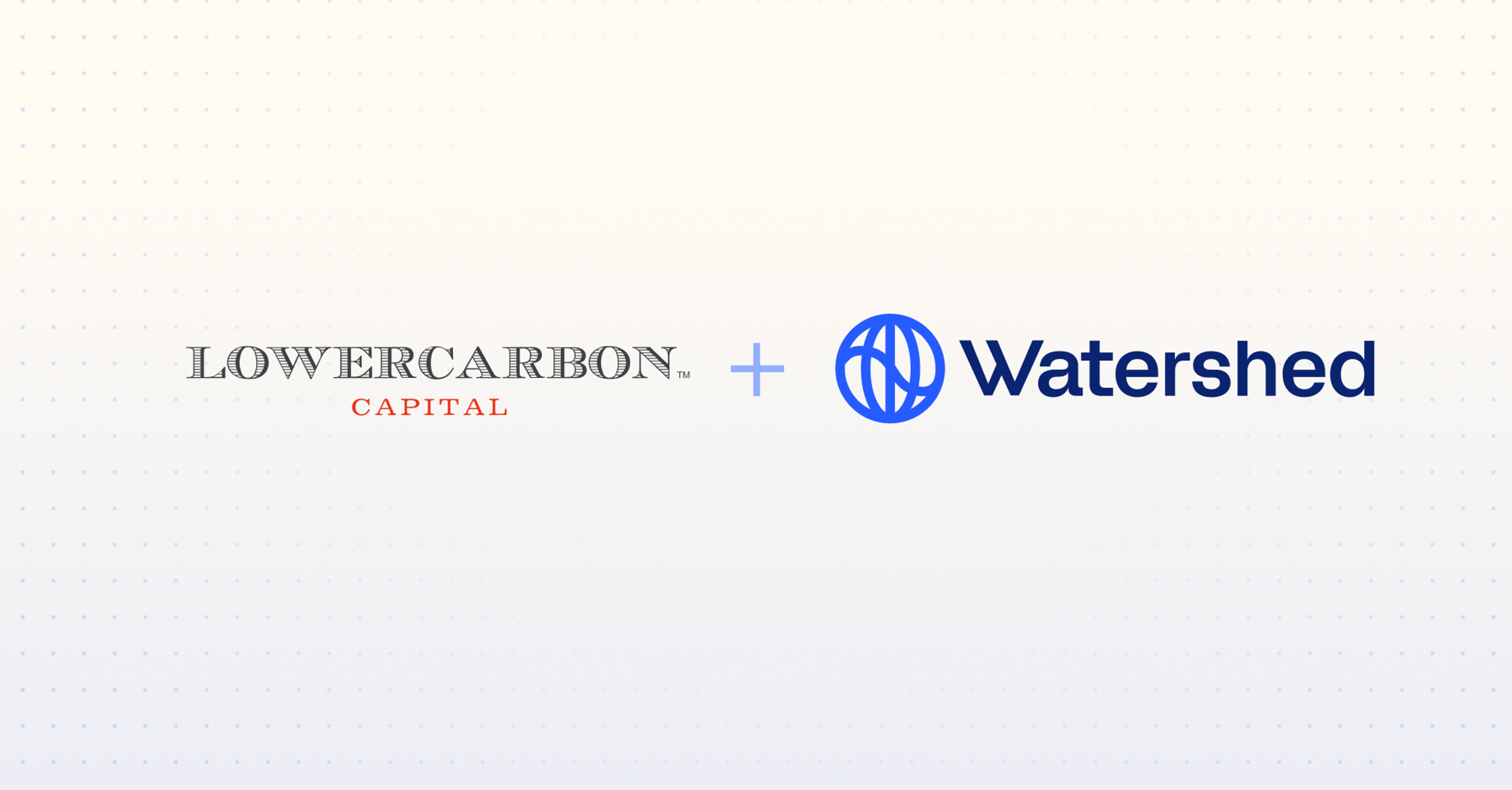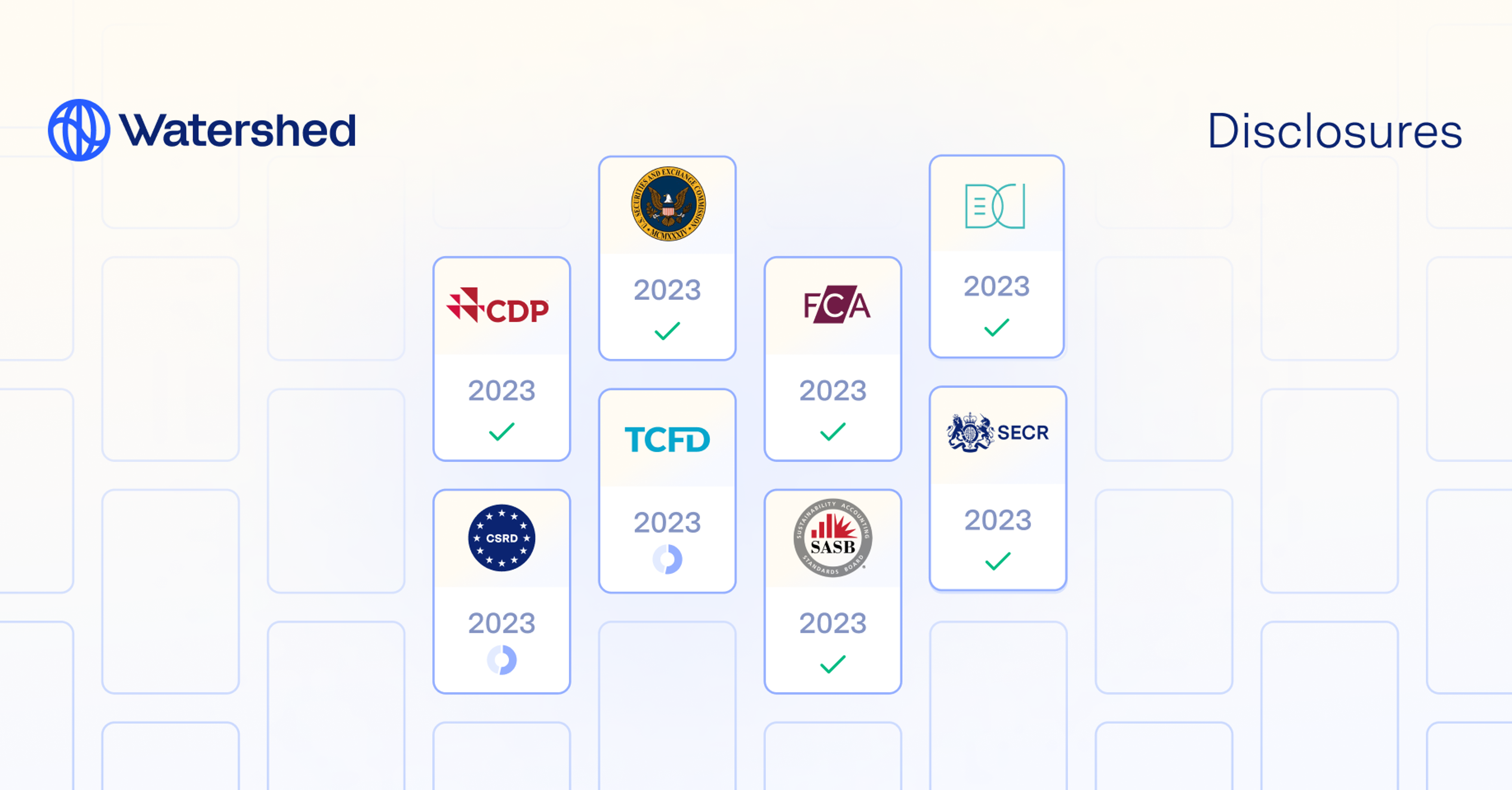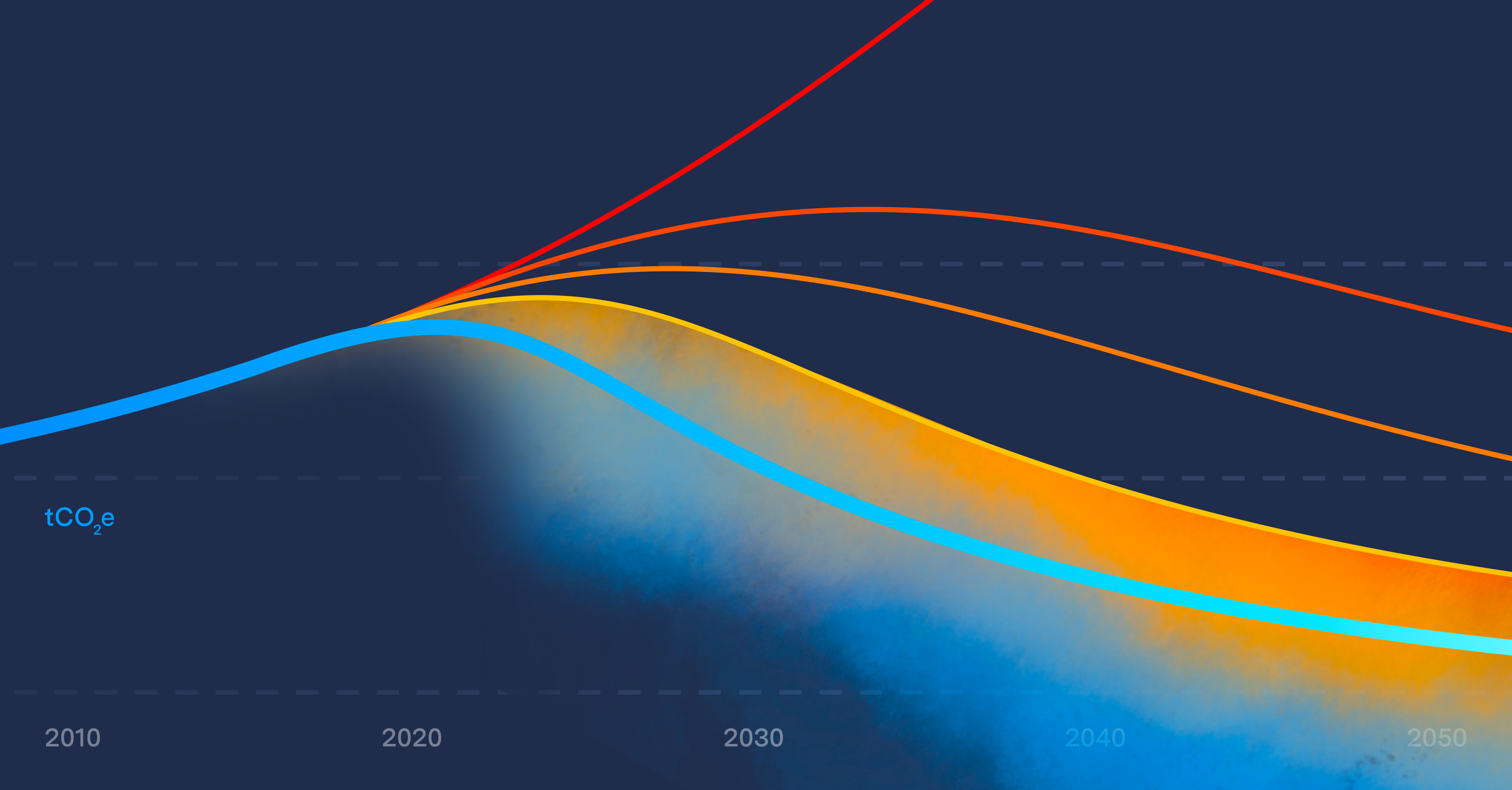We are committed to sustainability in all aspects of our business. Our mission is to accelerate the climate economy by giving companies the tools they need to accurately measure, report, and reduce their environmental impacts. Our 2030 goal is to reduce global emissions by 500 megatonnes of carbon dioxide equivalent (CO2e) annually, equal to approximately 1% of the world's emissions. This objective guides everything we do.
Committing to sustainability also means committing to decarbonizing our own business. We use the Watershed platform to measure our footprint annually, and we are in the process of setting science-based targets (SBTs) to guide our reduction efforts. In the past year, we've focused on our decarbonization hotspots including business travel, office catering, and upstream cloud processing. This has translated into internal policies about air travel, eliminating highly emissive food sources from our menus, and evaluating potential suppliers' sustainability commitments. We purchase sustainable aviation fuel (SAFc) and renewable power (EACs), and are investing in clean power to cover our upstream operations emissions.
Our core sustainability focus areas fall into two buckets: those that decarbonize our corporate operations, and those that enable decarbonization in our customers’ value chains.
To address our corporate emissions, we focus on the following areas:
- Tracking metrics and setting targets:
- Measuring and tracking our carbon footprint annually. Our total emissions for 2022 were 2,277 tCO2e (Scope 1: 21 tCO2e, Scope 2: 39 tCO2e, Scope 3: 2217 tCO2e).
- Setting and meeting a Science-Based Target (SBT).
- Decarbonizing Watershed’s operational emissions:
- Using our reductions product, forecasting our corporate emissions and developing reduction plans aligned to science-based targets.
- Purchasing renewable energy in the form of EACs to cover our own scope 2 operations.
- Offsetting travel emissions through high-quality sustainable aviation fuel credits. We have implemented internal travel policies, including prohibiting business class air travel, to reduce emissions.
- Decarbonizing Watershed’s supply chain through sustainable procurement:
- Selecting suppliers based on their sustainability commitments and actions, including by including vegetarian-forward menu options and excluding emissive items like beef; and using Google Cloud Platform which matches 100% of its electricity consumption with renewable energy purchases.
- Encouraging our suppliers to measure their emissions and plan for reductions through Watershed Supply Chain.
- Educating and engaging employees through sustainability training:
- Fostering a culture of sustainability within our organization.
- Providing ongoing sustainability education and training to our employees through formal onboarding, and ongoing deep-dive training on climate science and policy. This helps facilitate sustainable practices within our own organization, and supports our customers in their sustainability efforts.
To enable decarbonization in our customers’ value chains, we focus on the following areas:
- Enabling customer decarbonization through Watershed:
- Businesses use Watershed to identify emissions hotspots within their footprints and access actionable insights for reduction.
- Tracking estimated emissions under management and reductions within our customer base, against our 2030 goal of reducing 500 megatonnes of CO2e annually. As of August 2024, we are tracking over 1 gigaton CO2e of estimated emissions under management.
- Facilitating customer transitions to renewable energy:
- Advocating for and facilitating customer transitions to renewable energy sources.
- Partnering with leading renewable energy providers to offer customers access to impactful clean energy solutions, such as virtual power purchase agreements (VPPAs) across continents.
- Maximizing impact through sustainable supply chains:
- Assisting businesses in developing and maintaining sustainable supply chains, including by supporting customers to build supplier assessments and sustainable sourcing strategies, and to collaborate with suppliers to reduce their carbon footprints.
- Supporting highest-quality carbon removal and avoidance projects:
- Making highly-additional carbon removal and avoidance projects, such as enhanced rock weathering, bio-oil sequestration, and sustainable aviation fuel, available for purchase through the Watershed Marketplace.
By embedding sustainability into every aspect of our business, Watershed is committed to reducing our own carbon footprint and enabling our customers and partners to achieve their sustainability goals. Together, we strive to create a more sustainable future for our planet.




